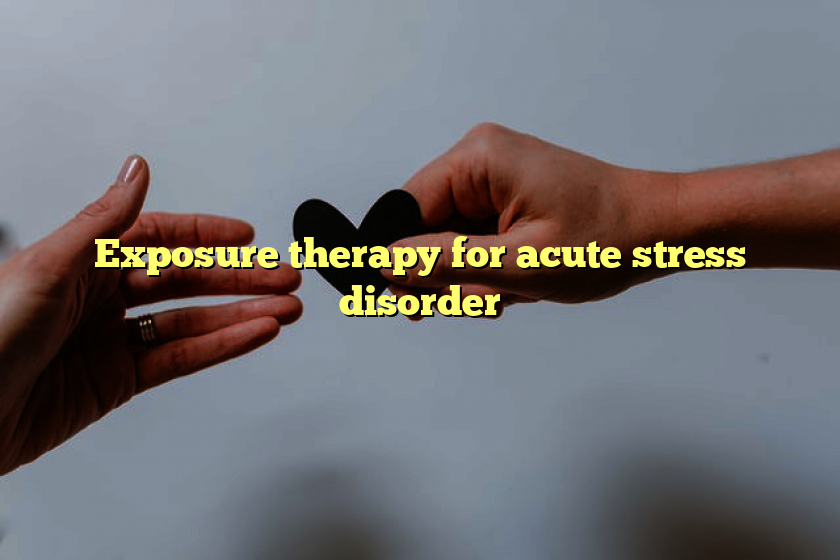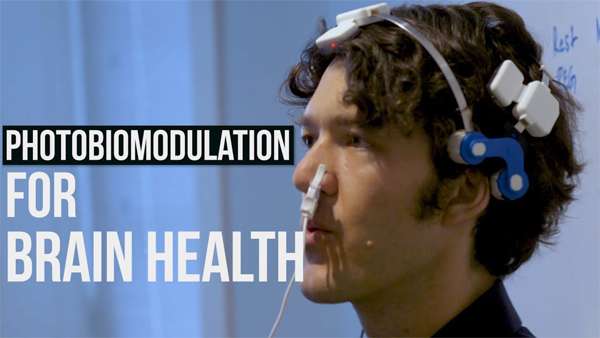Music therapists are highly trained, board-certified practitioners who work with a wide variety of individuals to help manage pain, reduce stress, express emotion, enhance memory, improve communication, and promote physical rehabilitation. Their patients include those with developmental disorders, mental health disorders, neurological conditions, trauma, and other medical needs.
Aspiring music therapists are required to complete an internship at a site that meets the standards of the American Music Therapy Association (AMTA), and must take a board certification exam in order to practice music therapy.
Working alone or alongside peers in other therapeutic specialties, music therapists assess their patients, establish individual goals to pursue, and then design music-based interventions to meet those goals. Depending on the treatment goals and their clients’ particular needs, a session might involve creating, improvising, listening to, and/or performing music. In addition to any specialty instruments, music therapists are expected to play guitar, piano, and hand percussion at a high level, and to be well-versed in a wide variety of musical styles and genres, all of which can be helpful in treatment.
Music Therapist Job Description Template
We are looking for a tuneful, compassionate Music therapist to provide our clients with music therapy consultations and services. During sessions, the music therapist will sing and play a wide range of instruments including the autoharp, piano, guitar, glockenspiel, and xylophone. You will offer passive listening as well as participatory programs that include playing, singing, and creating music. You will instruct patients on techniques such as progressive muscle relaxation.
To be effective in this role you need to multitask by playing music, interacting with clients, making assessments, and taking notes simultaneously. Top candidates will be meticulous and compassionate and have strong problem-solving skills.
Music Therapist Responsibilities:
- Collaborating with an interdisciplinary team to ascertain whether individuals qualify for music therapy.
- Designing musical interventions based on therapeutic goals to improve clients’ psychological, physical, and social health.
- Providing music therapy sessions.
- Inviting clients to interact by encouraging them to sing and dance.
- Monitoring clients during musical interventions and measuring the effectiveness of sessions.
- Recording and videotaping clients on a periodic basis to measure effectiveness and progress.
- Keeping records of client progress.
- Conducting biannual assessments to re-evaluate clients.
- Maintaining musical instruments.
- Overseeing and mentoring Music Therapist interns.
Music Therapist Requirements:
- Bachelor’s degree in music therapy.
- 2+ years work experience as a music therapist.
- Certified with Certification Board for Music Therapists (CBMT).
- Excellent communication skills, both verbal and written.
- Outstanding people skills.
- Proficient with playing guitar, piano, drums, autoharp and Orff instruments.
- Excellent singing abilities.
- Strong organizational and multitasking skills.
What is a Music Therapist?
A music therapist is part of an employment subgroup of creative arts therapists who use the arts to treat mental illness, provide support for individuals with disabilities, and to promote wellness and personal growth and creativity.
Music therapists create a therapeutic and supportive environment which taps into non-verbal processes to facilitate emotional, physical and mental change. It is effective with individuals who may have difficulty expressing themselves in normal ways; for example, children who have experienced trauma prior to the development of language skills, or people who have gone through profound trauma and cannot express it verbally. Children and adults who are developmentally disabled and unable to express themselves verbally can often communicate through the arts and music.
Music therapists use techniques like relaxation, guided imagery and improvisation, and they incorporate sound, music, and rhythm in a way to engage clients. Music therapy is a clinical and evidence-based therapy technique that has been proven to achieve individual and group goals when applied by a qualified professional.
Music is known to affect people not just physiologically by changing heart beat, blood pressure, temperature and breathing rate. Music also decreases feelings of isolation and lack of control, and it can open up spiritual vistas and help access and release repressed emotion. Music therapy is effective for anxiety reduction, depression, pain management, coping with stress, self-expression, and much more. Music is also a powerful means to promote group unity.
What does a Music Therapist do?
Like any therapist, the music therapist must do a thorough assessment of client needs and strengths. Goals and objectives are identified, and a treatment program is developed. A good arts therapist will consider a range of artistic activities, and will not hesitate to refer a client to another practitioner if another creative modality is considered more effective.
The music therapist will devise a program of music therapy for an individual client, then evaluate and adjust the program as needed. This form of therapy is often used very effectively with groups. Music therapy can include listening, instrument playing, interpreting, song writing, musical entrainment, and engaging in other activities with a musical base. The music therapist also participates in the ongoing therapy plan for the patient and follow-up assessment and evaluation.
A music therapist uses concepts from multiple disciplines. These can include speech and language therapy, physical therapy, nursing, medicine, and psychology. Sometimes the music therapist just encourages clients in reflective listening. Sometimes he or she engages the group or individual in singing or writing music. Playing a musical instrument is a powerful form of therapy. Drumming, for example, is known to reduce stress and regulate heartbeat. Music can help control pain and improve post-operative outcomes. The music therapist is responsible for assessing each individual and situation and prescribing the best form of music treatment.
Are you suited to be a music therapist?
Music therapists have distinct personalities. They tend to be artistic individuals, which means they’re creative, intuitive, sensitive, articulate, and expressive. They are unstructured, original, nonconforming, and innovative. Some of them are also social, meaning they’re kind, generous, cooperative, patient, caring, helpful, empathetic, tactful, and friendly.
Does this sound like you? Take our free career test to find out if music therapist is one of your top career matches.
Take the free test now Learn more about the career test
What is the workplace of a Music Therapist like?
The workplace is flexible, and can involve standard office hours in a range of settings, working with both adults and children. Locations can include: prisons, hospitals, schools, caregiving centers, community agencies, rehabilitation centers, daycares, senior centers and nursing homes. The most common settings are working with people with developmental disabilities, in trauma treatment, and with senior populations. Many therapists work in private practice. Work hours can include evenings and weekends.
The workplace can be in a music room, a private office, a home, or a large therapy room. Instruments most commonly used are guitars, drums and percussion, and keyboards, but any type of musical instrument can be used.
A key element of the music therapy workplace is safety. The individual client or client group must feel safe in that environment, and this may be interpreted both emotionally and physically. Emotional safety involves not allowing musical triggers that could create trauma, while physical safety could mean not allowing sharp implements that could potentially serve as weapons. Much depends on the circumstance and the clientele. The focus is on making music.
Music Therapists are also known as:
Neurological Music Therapist Music Rehabilitation Therapist
Overview
What is music therapy?
Music therapy is the clinical use of music to accomplish individualized goals such as reducing stress, improving mood and self-expression. It is an evidence-based therapy well-established in the health community. Music therapy experiences may include listening, singing, playing instruments, or composing music. Musical skills or talents are not required to participate.
Music therapy may help you psychologically, emotionally, physically, spiritually, cognitively and socially. A short list of benefits includes:
- Lowering blood pressure.
- Improving memory.
- Enhanced communication and social skills through experiencing music with others.
- Self-reflection. Observing your thoughts and emotions.
- Reducing muscle tension.
- Self-regulation. Developing healthy coping skills to manage your thoughts and emotions.
- Increasing motivation.
- Managing pain.
- Increasing joy.
Formal music therapy was defined and first used by the United States War Department in 1945. It helped military service members recovering in Army hospitals with occupational therapy, education, recreation and physical reconditioning.
Who do music therapists work with?
People of all backgrounds, ages and cultures can respond to music, and to music therapy. Notable groups music therapists have helped include:
- Military service members and veterans. Music therapy helps you cope with trauma.
- People with Autism Spectrum Disorder (ASD). Individuals on the spectrum learn best when there is familiarity, structure, predictability and consistency.
- Individuals with Alzheimer’s disease. Music therapy may help with memory and stimulate your mind because of predictability, familiarity and feelings of security.
- People in correctional settings. If you’re incarcerated, in a mental health facility, half-way house or group home, music therapy may help with problem-solving, communication skills, relaxation and decreasing impulsivity.
- Victims of trauma and crisis. If you’ve experienced trauma and crisis, you might have anxiety, stress and pain. Music therapy can help you with decreasing those three experiences, improving your mood, feeling confident and in control and providing a non-verbal outlet for emotions.
- Those who are physically ill. The list includes, but is not limited to people with chronic pain, diabetes, cardiac conditions, cancer, headaches, recent surgery and people in rehab.
- Individuals with mental health disorders. If you’re dealing with a mental health disorder, music therapy can help you with communication and expression, help you explore your thoughts and feelings, improve your mood and concentration and develop coping skills.
- People with chronic pain. Music therapy can help decrease your pain, anxiety, fatigue and depression.
- Substance abusers. Music therapy may help if you have a substance abuse disorder. Research has shown that it can increase motivation and self-esteem, reduce muscle tension, decrease anxiety, improve self-awareness and strengthen coping skills.
Where does music therapy take place?
The most common settings are hospitals, schools, nursing homes, outpatient clinics, mental health centers and residences for individuals with developmental disabilities. Music therapists also go to juvenile detention facilities, schools and private practices.
Is music therapy outpatient or inpatient?
Whether the music therapy is delivered outpatient or inpatient depends on the individual program. You may be able to come in for sessions during the day (just like a counseling appointment), or a music therapist may come to you while you’re admitted into the hospital or at school. Sometimes music therapy is held in groups.
Do music therapists work with children and adolescents?
Yes. Music therapy may help with the following:
- Behavior disorders.
- Mood and anxiety disorders.
- Attention deficit/Hyperactivity disorder (ADHD).
- Autism spectrum disorders (ASD).
- Trauma.
- Substance abuse disorders.



